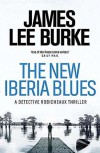Currently reading
One of Grisham's Finest
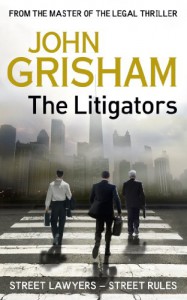
I've read nearly all of John Grisham's books. This is one of his most excellent books in recent years. It's true Grisham law drama, with corruption, human tragedy and personal drama in perfect measure.
Classic Grisham
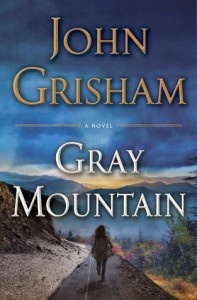
You really can't go wrong with John Grisham for a good read. Gray Mountain is no exception. I've read nearly all of Grisham's books and they're all solid reads that define the legal thriller genre.
Gray Mountain does for the coal industry what Runaway Jury did for the tobacco industry. Set in Appalachia, it gives a look at the local life, culture and natural landscape there that goes beyond the stereotype. In that respect, it's a brilliant and important book. He also takes on the new economy and Big Law, with pertinent glimpses into the moral and ethical conundrums that one can only hope all lawyers address at some point in their careers. The setting, characters and theme are all worthy of 5 stars.
As a Grisham fan, my only criticism is that - having read so many of his books - this one seems almost formulaic, like it's following a Grisham template. I would have liked to have seen a bit more originality, maybe a twistier plot, and potentially a stronger ending.
Entertaining short stories with a fun theme

As a native New Yorker, I was drawn to this volume of short stories right away. I was travelling (destination New York, as a matter of fact) and had just finished another novel and wanted something that wasn't too dense. I also really like mystery tales and have been trying to find more to read of that genre.
I hadn't read much, if any, of Mary Higgins Clark before, but recognized the name. I didn't really recognize any of the other author's in the volume.
I found a majority of the stories quite entertaining; one or two were very good, memorable and well-written; and a few a little dull to the point that I had to skip ahead. Luckily, the benefit of this format is that you can pick and choose what to read. Sometimes I persisted with a story a little too long, so I'd recommend dropping them if you're not into it right away. They don't all come with a decent plot or developed characters, and quite a few felt to me like they were straining to fit the genre of "mystery" at all. But those that grabbed me were sufficiently entertaining for a light read. There are some funny stories, some tragic, some off-the-wall, but none all too strong in any direction.
Tying the volume together is that each chapter is set in or based around an iconic Manhattan neighborhood. I liked recognizing the different places, monuments, cultural references and time periods as those I'd passed through myself in the city. Definitely a fun idea. My main criticism is simply that not all of them were powerful enough plots (few twists and turns, for instance) for what could have been a great compendium of true mystery and suspense.
If you're looking to dip in and out of some fun stories, I'd highly recommend checking it out from a library (like I did) or pick it up second-hand.
 1
1
Reading progress update: I've read 145 out of 361 pages.

This is a beautifully written book that I stumbled on by chance. The story is gripping and the descriptive language is especially immersive. I'm very pleased that I decided on a whim to read it.
Full Dark, No Stars, by Stephen King (2011)
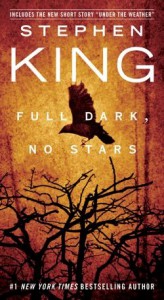
Each of the short stories in this collection is quintessentially Stephen King. Which is to say: disturbing. Sometimes, the evil is woven in with an eery calm and just bubbles intermittently to the surface. Mostly, however, it is open and raw at such a deep and sinister level that the words make the reader squirm uncomfortably and physically pull away from the book. It's not my favorite from King; not because the stories aren't well written or powerful, but because of how inescapably dark yet real they are. Although there are shades of Leland Gaunt (Needful Things) in "The Extension" and the Dark Man with his rats in the cornfield (The Stand) in "1922", these are no mere tales of common devils or simple tricksters. King trawls the dankest, most monstrous human depths imaginable; he makes us witness horrors committed one after another by the once-innocent, the perhaps-innocent, and the never-innocent, while pitting them all against each other, testing what we can stomach to forgive across a lengthy list of unfathomable crimes. Page by page, you can feel the despair, devastation, confusion, and above all, the absolute terror. Yet, somehow, Full Dark, No Stars remains a compulsive page-turner. Even after you close the book and long after you've read it, the stories will haunt you. While all are unsettling, for me, one story in particular is not for the squeamish, but I'll follow Stephen King's masochistic example and let you figure out which one for yourself.
 1
1
Reading notes: Open City by Teju Cole

I stopped reading Open City by Teju Cole - at least temporarily - on page 75. By its description, I thought that I would really love this book, but there are a few reasons why, every 10 or so pages into reading, I have found myself nearly ready to close the book and give up on it for good.
First, I find the protagonist to be very unrelatable despite the almost overwhelmingly obvious universality of his experiences in Manhattan. His urban melancholy borders on tedious and rather annoying instead of endearing as I thought it might be from the first few pages. This is taxing because I would otherwise find it very easy to relate to urban malaise and feelings of utter isolation in crowded cities. So the reader does not easily come to feel any emotions for the dull narrator.
Secondly, the literary and musical references which frame nearly every moment of contemplation for the protagonist are dull and also unrelatable, not because the author does not convey mood, feeling or immersion when the character speaks of them - quite the contrary - but because I think they are in fact a rather pretentious and uncomfortable "fit" for him. Or maybe this is yet another by-product of not building an emotional connection to the main personality within the first quarter of the book.
Similarly, I have thus far found the secondary characters dull, with only a few intriguing personalities glossed over as passing strangers.
And yet I have plodded on, page by page, just about ready to put the book aside permanently, but then some turn of phrase, an amusing truism or dead-on description of a familiar aspect of NYC life as it might be seen from an outsider's eyes hooks me back in again for a few more pages.
It's possible that I'll return to the book at some later date and catch up where I left off, so I'm not ready to review this text yet.
Flatland, by Edwin Abbott Abbott (1884)

Victorian social satire meets fourth-dimensional geometry! Told from the perspective of a rather ordinary Square living in a strictly regimented two-dimensional world, Flatland offers myriad existential and mathematical challenges for even the sharpest mind. When a visiting Sphere from the third dimension reveals to our plane-bound protagonist previously unknown knowledge of the physical universe, he can never see his native Flatland the same way again. A must read for math/physics geeks and social scientists alike.
Motel of the Mysteries, by David Macauley (1979)

I first read this book when I was around 8 or 9 years old. It is a richly descriptive and satirical look at the archaeology/physical anthropology of our present (or the present at the time of publication, 1979) in the distant future. Page by page, future archaeologist Howard Carson uncovers the untouched landscape of an American motel room that was frozen in time after an unforeseen catastrophe in 1985. The world beneath his feet is full of ritual symbolism and he meticulously catalogs the complex geographies of religious significance that he finds. As he pieces together the minute details of this long-defunct civilization, the reader is bemused by his misguided interpretations of everyday items in a typical hotel room invariably classed as exalted ceremonial relics.
The book not only pokes fun at the material culture of mid-century Americans, but speaks to the inherit limits of fields like history and archaeology to make sense of the distant past through its physical artifacts alone. As a kid, I enjoyed this book for its fun descriptions, overt irony and how it challenged the reader to take a new perspective on the objects around us that we take for granted. It really captivated my imagination.
Unbeknownst to my 8-year-old self at the time, I would later go on to pursue a PhD and a career in anthropology. Now with an insider's view of the fields under parody, I find this book even more accurate. Pretty much any objects, artifacts or layouts that archaeologists cannot easily explain are attributed to "ritual purposes" or "the sacred". Religion is the catch-all category for all of the stuff that humans have trouble understanding or accepting. This book teaches us the very important lesson that present-day biases make us all foolhardy in our attempts to matter-of-factly narrate the past. Extend this advice further and it suggests that it is not wise to presume to know the lives of others via a cursory glance clouded by our own preconceptions. And this is a good starting point for understanding the foundations and rationale of anthropology.
In the classroom, this book makes a fantastic exercise for imparting critical thinking skills in a fun and entertaining way. However, I recommend it to readers of all ages. The wonderful illustrations add to its charm and memorability.

Depiction of a woman of Usa in ceremonial dress.
The Martian Chronicles, by Ray Bradbury
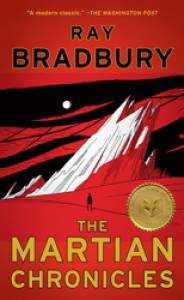
Ray Bradbury's The Martian Chronicles is a captivating sci-fi classic comprised of a series of the author's previously published short stories. Well after half a century since it was written, it remains an impressive futuristic adventure full of awe-inspiring details and thoughtful, existential debates still relevant in 2013.
Angels & Demons, by Dan Brown

Another cringe-worthy, poorly written offer from Dan Brown. How his lackluster and frustrating novels make it to the bestsellers' list never ceases to confound. At least the movie based on the book is entertaining, so it's not a total loss.
 1
1
The Carrot Seed, by Ruth Krauss

A simple classic that I remember fondly as the first book I loved as a child. I'm grateful that I had genuinely enriching books like this to read as a kid instead of an iPhone to mindlessly swipe at.
